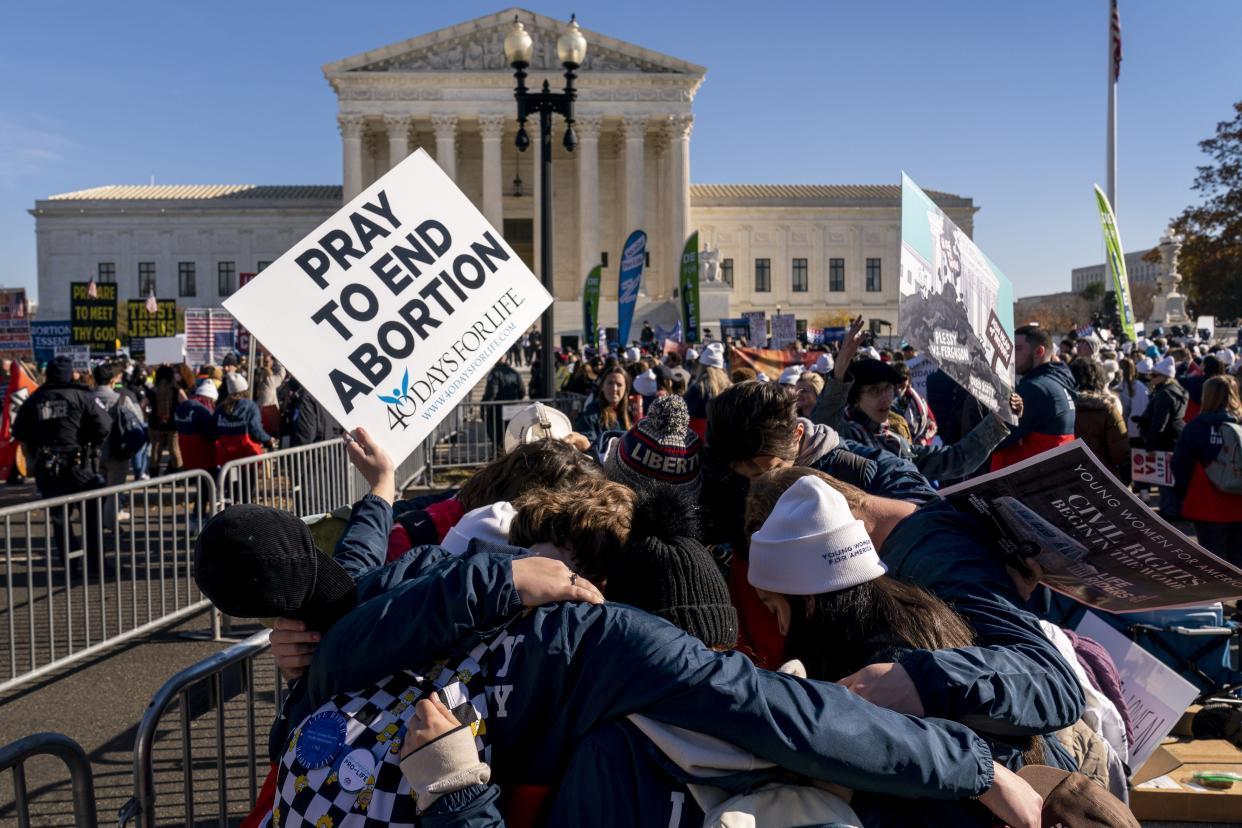Overturning Roe v. Wade would allow abortion to be a state legislative issue

I have sensed real panic among my liberal friends about the possibility that the United States Supreme Court will, in Dobbs v. Jackson, either amend or overrule Roe v. Wade. I do not know how the court will rule — nobody does — but I feel constrained to try to inject some facts and perspective into this controversy.
Hair on fire! The claim that abortion will be illegal if Roe is overturned is blatantly false. If Roe — which even Ruth Bader Ginsburg sharply criticized as "heavy-handed judicial intervention (that) was difficult to justify and appears to have provoked, not resolved, conflict” — is overturned, the issue will become a state legislative issue. Hence, the voters in the different states will have the opportunity to determine the laws that govern the conduct of their citizens.
If the voters in California want legal abortion, that would be their decision, as would decisions made by elected representatives, accountable to their constituencies, in every state. The idea that an unelected, unaccountable branch of government, the judiciary, should determine these matters should be anathema to those who revere a representative and accountable government. One can only surmise that the liberals fear that they will not be able to persuade voters to adopt positions on abortion that they would wish.
More from Edward B. Harmon:
Common sense prevailed in election results from Virginia to New York City
Higher taxes would act as a strong disincentive to economic growth
President Biden lied about U.S. withdrawal from Afghanistan
Much has been made of the issue of “stare decisis,” a healthy respect for precedent. We need to note that stare decisis is not intended to forever preclude review of a horrid decision. Liberals should well note that such decisions as Brown v. Board of Education (school desegregation), Baker v. Carr (one man, one vote), Miranda (advising of rights), Gideon (right to counsel) and Obergefell (gay marriage), and many others that liberals welcomed, all involved the overturning of years of precedent.
It is a dangerous approach for liberals to attack and threaten the court if decision do not go their way. There have been many Supreme Court decisions that I disagreed with but no conservative of whom I am aware took it upon themselves, as liberals feel free to do, to threaten to change the court or otherwise delegitimize it.
Liberals are shocking in this regard. If every court decision does not go in a way that pleases their momentary desires, they want to destroy the institution.
Much has been made about the role of Supreme Court justices nominated by President Donald Trump. When liberals attack those justices one might fairly ask them if they felt the same way when those same judges, in Texas v. Pennsylvania, unanimously denied standing — a highly technical decision — on Trump’s court appeals of the 2020 election. Or when justices Brett Kavanaugh and Amy Coney Barrett each voted to uphold Obamacare in California v. Texas. I think not, but the absurdity of their argument of some sort of conservative politicized cabal is clear and they know it.
Do pro-lifers seek to impose their moral views on the nation? Not even close. The real issue in Dobbs is whether the court will allow a democratic politics of abortion or continue to force one side, the pro-lifers, to play by rules stacked against it and the Constitution.
In both Roe and Planned Parenthood v. Casey the justices, unelected, took the issue of abortion out of the hands of the American people and instead chose to impose their own morality, without a whit of constitutional authority, as was pointed out by Justice Kavanaugh. Those judges really, as Ginsburg well predicted, merely inflamed the passions on both sides. The Mississippi attorney general stated it brilliantly when she stated, “In Roe, the court turned actual policymaking in state legislatures into an almost academic exercise.”
Roe was an awful decision, in the opinion of many esteemed liberals. That was acknowledged by the three judges in its progeny, Planned Parenthood v. Casey, when they rejected the reasoning of Roe while preserving the outcome. Casey’s real contribution was the equally untenable and arbitrary “undue burden” standard, whose meaning has yet to be explained.
One might fairly ask whether if the estimated 62,502,904 abortions in this country had not been performed, how much wealthier and more productive our society might be? How many more brilliant scientists, teachers, doctors and writers would we have?
In summary, the overturning of Roe is the closest America will get to justice and democratic satisfaction on this issue.
Edward B. Harmon is a retired mergers and acquisitions attorney and law school professor who is a monthly contributor to the Gainesville Sun. He lives in Gainesville
This article originally appeared on The Gainesville Sun: Edward B. Harmon: Overturning Roe would let states decide on abortion

